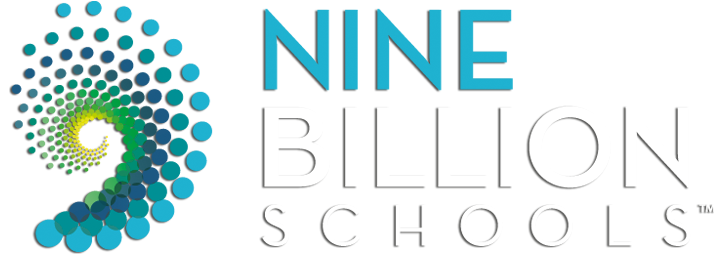State of the Institute: A Report on 9 Billion Schools
In just 31 years, there will be 9 billion people on the planet.
Take a moment to really let that sink in. It may be hard to believe, but we’re essentially just one future generation away from hitting what used to feel like an incredibly distant milestone.
Which begs the question: How far has the 9 Billion Schools movement to come toward realizing a world with life-long, life-wide and life-deep personalized learning for all?
As it turns out, we’ve come quite a long way.
We finished the first edition of our book. We launched the 9 Billion Schools Institute, a 501(c)3 nonprofit organization dedicated to advancing the 9 Billion Schools vision. And throughout the last year, we developed our board of trustees, engaged in new partnerships, and began executing on initiatives we believe will demonstrably move the needle.
And we have more exciting progress on the horizon… which is why we thought it important to outline where the Institute is now and what we hope to accomplish in 2019.
Research
The 9 Billion Schools Institute continues to pursue multiple research opportunities with institutions like Arizona State University (ASU) related to the future of learning. Conducting research is one of the Institute’s core objectives, and we’re excited to begin these new initiatives. Current efforts involve the formation of studies in the following areas:
Gaming as a learning tool
The future of learning as it relates to 2030 environments
Prototyping learning environments for 2030 and beyond
What safety means in 2030
Enhancing creativity as the primary goal of education
Understanding how spaces shape productivity
Moving forward, we hope to develop additional opportunities to study lifelong learning and its benefits in the workplace and community. As corporate America wrestles with the changing needs of the workforce and the growing emphasis on the need to develop social capital in the workplace, the impact of lifelong learning becomes ever more important and influential. We’re always on the lookout for big, bold research ideas; if you have a research study suggestion or a question you’d like to help answer, let us know! You’ll find my contact information at the end of this post.
Futurecasting
The 9 Billion Schools Institute offers Futurecasting services to help businesses, education organizations and others better understand how they can shape their futures—addressing where they would like to be in 10 years, and what steps they can take to make that vision a reality. Several education clients have commissioned Futurecasting sessions 2019. Futurecasting can be an important and highly strategic step in sustaining, advancing and enhancing one’s presence in a rapidly changing environment and world. Futurecasting is one of the 9 Billion Schools Institute’s key consulting services supporting innovative forms of lifelong learning across businesses, educational institutions and communities
For more information on Futurecasting as a service, check out our 2017 blog series, which documented each step of the process with two merging parochial schools.
Exploring New Directions
In May 2019, representatives from the 9 Billion Schools Institute are attending a working session at ASU called The Next Education Workforce: Asking the Right Questions. The session will explore critical issues around workforce development of future professionals and learners.
Additionally we are pursuing collaboration strategies with ASU’s School for Innovation and Society, Sesame Street and the Joan Ganz Cooney Center for Early Childhood Learning that continue to explore the future of early childhood education and the role of technology, specifically augmented and virtual reality environments, in learning.
If you would like to discuss collaborations with the 9 Billion Schools Institute, or if you or your organization is in a position to help underwrite some of our important work, please contact me at dick@9billionschools.org.
In 2019, we look to expand the influence and capabilities of the Institute so we can focus more effort on the issues shaping the national conversation around skills development, technological impact and the importance of lifelong learning. You can join us in these conversation by following us on Twitter, Facebook and LinkedIn.






